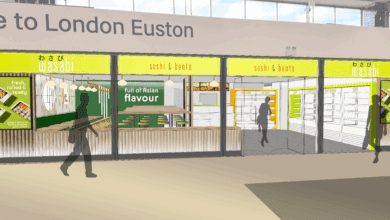Is clubbing dead for Gen-Z?
The culprit is less discretionary spending after rent and other essentials are taken care of, as the average UK student has a monthly disposable income of just £182

Clubbing as we know it might be going the way of disco in the UK due to the majority of its participants – young people aged between 18 and 30 – going out less than they did a year ago, or so says a new study conducted by Obsurvant on behalf of the Night Time Industries Association (NTIA). The main barriers preventing nightlife participation were the greatest hits of financial constraints, safety concerns, and inadequate late-night transport.
As a rule, young people are thought to be wild and reckless but for once could it be that, actually, Gen-Z is truly more responsible and practical-minded than any other generation was before them? Mintel’s research into the lifestyles of this cohort in Britain revealed that Gen-Z rejects alcohol more significantly than other generations. When comparing between generational British lifestyles, consumers aged 20 to 24 were found to be almost half as likely to prioritise spending on alcoholic drinks for the home than consumers aged over 75.
Matt Herbert, co-founder and co-CEO of Tracksuit, also noted that this upward trend of drinking at home is particularly evident among younger demographics. He said: “More supermarkets, convenience stores, and online platforms are expanding their alcoholic beverage selections, while the rise of online wine retailers and targeted marketing on social media is driving further engagement.”
Wetherspoon chairman Tim Martin, who operates a number of pubs that stay open until 12am, attributed the price discrepancy between beer bought at a supermarket and hospitality venue to the fact that supermarkets pay no VAT on food sales, whereas pubs pay 20%. According to Martin, this tax advantage allows supermarkets to subsidise the price of the beer they sell.
“A direct consequence is that beer volumes in the on-trade have decreased by an incredible 52% between 2000 and 2023,” Martin says. This is one of the reasons why Wetherspoon called upon Sir Kier Starmer earlier this year to redress this imbalance ahead of April, when additional costs announced in the autumn budget are due to hit the sector.
Put simply: drinking at home is cheaper now, while in the days gone by a young adult could comfortably afford to pre-drink in a pub or bar. Going back to Mintel’s Gen-Z study, it found that only 36% of the cohort aged 18 to 25 socialise by going to bars and pubs with their friends. The NTIA’s 2025 consumer research (aptly called ‘Why Young People Are Going Out Less’) found that 61% of respondents reported going out less frequently in the past year, with only 16% stating they go out more after 10pm – that last figure is especially shocking.
The culprit is less discretionary spending after rent and other essentials are taken care of; some 68% of young people told the NTIA that the current economic climate has reduced their participation in night-time activities, while 53% said they spend less on going out compared to last year. What’s more, Unidays’ latest Student Insight Report found that the average student in the UK has a monthly disposable income of just £182. As a result, one in three students have taken on a side hustle, while 59% said they resell clothes to make some extra money.
Chief executive of the NTIA, Michael Kill, said: “Our research confirms what we in the industry have been warning about for years – young people are being priced out of nightlife. The UK’s night-time economy is a vital cultural and economic force, yet we are seeing a generation disengage due to systemic issues. If we do not act now, we risk further decline in the sector, and the social and economic benefits it brings.”
The Student Insights Report from Unidays shed some light on young adults’ sentiment towards their money, as well as their spending habits and shopping priorities. It revealed that, while 59% of respondents are concerned about the cost of living – down from 68% last year – they are not prioritising nights out with their discretionary incomes, with 41% saying they spend what’s left on fashion, and another 38% of respondents choosing to spend on travel.
While Mintel’s findings showed that Gen-Z has limited their alcohol consumption, that doesn’t mean that they aren’t drinking at all – it’s just that those who do, tend to drink primarily as a treat, to relax, or to mark a special occasion. This cohort stands out from older generations, Mintel pointed out, in how little alcohol is used as a refreshment or to elevate meals.
So, when young adults decide to cut loose and stay out late, where do they go? Well, a separate NTIA study in partnership with CGA by NIQ found that a wave of new bars and experiential venues is revitalising the evening economy; 2024 saw particularly sharp growth in themed bars (up 24.4%), cocktail bars (up 17.4%) and craft bars (up 14.3%). Venues offering competitive socialising and other interactive experiences have also been among the fastest growing of any hospitality channel in recent years. It is clear that young adults today are prioritising activities that are both fun and good value for money.
But going back to the NTIA’s report with Obsurvant, it was found that young adults’ reluctance to party until the wee hours of the morning is also down to safety concerns – especially among women. Almost a third of respondents reported feeling fear, anxiety, uneasiness or just a plain lack of safety when out at night, and women were significantly more likely to report these concerns than men. In fact, over half of women surveyed expressed concerns about travelling late at night. What’s encouraging is if better late-night transport options were made available, 69% of all respondents told the NTIA that they’d feel encouraged to stay out later.
“Our research highlights the growing barriers young people face in accessing nightlife and the resulting impact on the industry,” Alex Morrison, co-founder of Obsurvant, said. “They reflect real anxieties and financial pressures that are fundamentally reshaping social habits and how people engage with nightlife.”
However, you could say that the damage has already been done because over half of respondents – particularly those who feel unsafe – expressed low confidence in the government’s ability to address their concerns. A notable 89% of those who feel unsafe, anxious, uneasy or fearful, do not have confidence in the government’s ability to address night-time safety.
Nevertheless, respondents still expressed enthusiasm for improved night-time infrastructure despite their government-aimed pessimism. Key areas of improvement included enhancing street lighting and making transportation more safe (64% and 59% of respondents cited these respectively), as well as extending public transport hours and making transport services more frequent. Respondents would like to see lower late-night travel costs, in addition to a heightened security presence at the venues they attend. They also feel that increased policing on the streets at night to enhance public safety would encourage them to plan nights out more often.
Kill agrees with all of the suggestions that the NTIA’s study unearthed, saying that him and the association “call on policymakers to prioritise investment in safer streets, improved transport networks, increased policing at night, and financial support for venues to keep nightlife vibrant, accessible, and safe for all”.
Morrison added that the findings point to “a clear need for action on a local and national scale to ensure nightlife remains safe, accessible, and economically viable for young people”.
In the end, it’s not that Gen-Z doesn’t want to go out – it’s that they simply can’t afford to. The desire to socialise, dance, and drink into the early hours hasn’t disappeared, but the rising costs of rent, transport, and even a simple round of drinks, have made nightlife feel more like a luxury than a given. While this generation may be more pragmatic in their spending, their reluctance to party late into the night isn’t necessarily a choice – it’s a consequence of an economy that’s priced them out of the very experiences that once defined youth culture. If the cost of living weren’t so restrictive, we might just see clubs packed once again.







